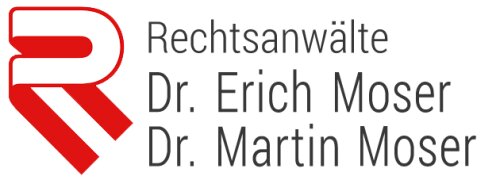Best Employment Rights Lawyers in Austria
Share your needs with us, get contacted by law firms.
Free. Takes 2 min.
Or refine your search by selecting a city:
List of the best lawyers in Austria
About Employment Rights Law in Austria
Employment rights in Austria are governed by a comprehensive set of laws and regulations designed to protect workers and ensure fair treatment in the workplace. These laws cover various aspects such as working conditions, wages, health and safety, discrimination, and termination of employment. The Austrian labor market is characterized by its strong social partnership, with collective agreements playing a significant role in shaping employment conditions across various industries. The core legal framework is provided by the Austrian Labour Code, the Working Time Act, and the Employment Contract Law Adaptation Act, among others.
Why You May Need a Lawyer
There are numerous situations where individuals may require legal assistance in the realm of employment rights. Common scenarios include disputes over wrongful termination, discrimination based on gender, age, or disability, unpaid wages or benefits, and violations of workplace safety regulations. An employment lawyer can provide expert advice on negotiating severance packages, representing clients in court or during mediation processes, and understanding complex employment contracts and collective bargaining agreements.
Local Laws Overview
Key local laws relevant to employment rights in Austria include:
- Arbeitszeitgesetz (Working Time Act): This law regulates working hours, including overtime rules, rest periods, and flexible working hours arrangements.
- Arbeitsverfassungsgesetz (Labour Constitution Act): It outlines the rights and duties of workers' councils and the framework for negotiations between employers and employees.
- Kündigungsschutzgesetz (Termination Protection Act): This act provides protection against unfair dismissal and sets guidelines for proper termination procedures.
- Gleichbehandlungsgesetz (Equal Treatment Act): It prohibits discrimination in employment on grounds of gender, ethnicity, religion, age, or sexual orientation.
Frequently Asked Questions
What are my rights regarding working hours in Austria?
The standard working time is eight hours per day and 40 hours per week, though many collective agreements set a lower weekly limit. Overtime must be compensated, often with additional pay or time off.
Can my employer terminate my contract without notice?
No, Austrian law requires a notice period, which can vary based on the duration of employment and is often specified in collective agreements. Immediate termination is only allowed under specific conditions.
Am I entitled to paid vacation?
Yes, employees are generally entitled to 25 working days of paid vacation per year, which increases to 30 days after 25 years of service.
What should I do if I face discrimination at work?
You should report it to your employer or the works council and may also file a complaint with the Equal Treatment Commission.
What rights do I have as a part-time worker?
Part-time workers have proportional rights compared to full-time workers, including pay, benefits, and holiday entitlements based on hours worked.
How is maternity leave regulated?
Maternity leave in Austria typically lasts for 16 weeks, split equally before and after birth. During this time, employees receive a maternity allowance.
Can I request flexible working hours?
Yes, under certain conditions, employees can negotiate flexible working hours with their employer, often facilitated by collective agreements or company policies.
What recourse do I have if my employer doesn't pay my wages?
You can file a claim with the labor court and, in some cases, the Chamber of Labour may assist in recovering unpaid wages.
What is a collective agreement?
A collective agreement is a contract negotiated between employers’ associations and trade unions that sets conditions for workers, including wages, working hours, and other employment terms.
How can I join a trade union?
Membership is typically open to all workers, and you can join a trade union by contacting them directly and enrolling as a member.
Additional Resources
- Chamber of Labour (Arbeiterkammer): Offers advice and support on employment issues.
- Federal Ministry of Labour: Provides official information on labor laws and employment standards.
- Equal Treatment Commission: Handles complaints regarding workplace discrimination.
Next Steps
If you believe you need legal assistance with an employment rights issue, consider taking the following steps:
- Consultation: Reach out to a lawyer specializing in employment law for a consultation to discuss your case.
- Documentation: Gather all relevant documents such as employment contracts, pay stubs, correspondence with your employer, and any other pertinent information.
- Support: Contact the Chamber of Labour for guidance and support, especially if you are a member.
- Union Representation: If applicable, speak with your trade union representative to explore their support options.
Lawzana helps you find the best lawyers and law firms in Austria through a curated and pre-screened list of qualified legal professionals. Our platform offers rankings and detailed profiles of attorneys and law firms, allowing you to compare based on practice areas, including Employment Rights, experience, and client feedback.
Each profile includes a description of the firm's areas of practice, client reviews, team members and partners, year of establishment, spoken languages, office locations, contact information, social media presence, and any published articles or resources. Most firms on our platform speak English and are experienced in both local and international legal matters.
Get a quote from top-rated law firms in Austria — quickly, securely, and without unnecessary hassle.
Disclaimer:
The information provided on this page is for general informational purposes only and does not constitute legal advice. While we strive to ensure the accuracy and relevance of the content, legal information may change over time, and interpretations of the law can vary. You should always consult with a qualified legal professional for advice specific to your situation.
We disclaim all liability for actions taken or not taken based on the content of this page. If you believe any information is incorrect or outdated, please contact us, and we will review and update it where appropriate.
Browse employment rights law firms by city in Austria
Refine your search by selecting a city.















